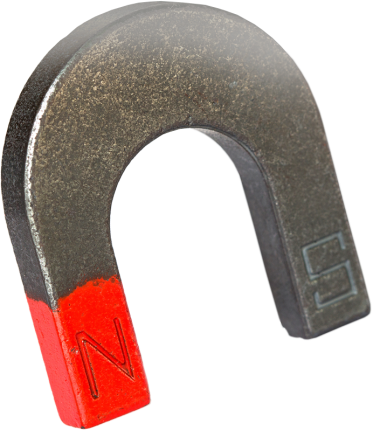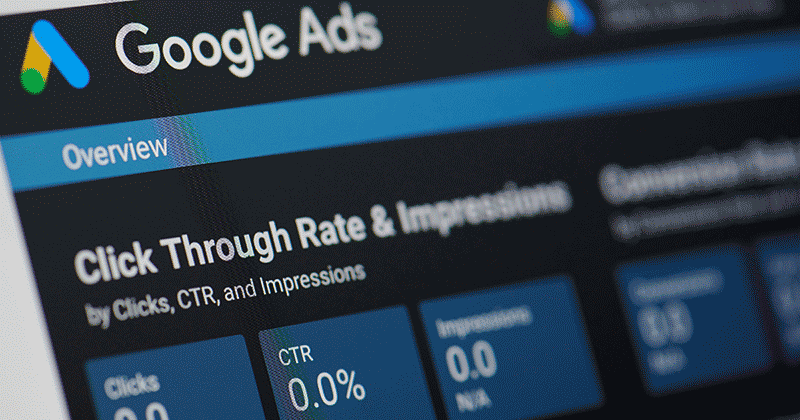Search Around the World: UK & Europe
I have wandering back into the light and now my favorite panel is here! I’m going to dedicate this recap to our awesome BC Europe team because they, like the panelists, have awesome accents (and wicked SEO skills).
Moderating the panel of awesome is Jonathan Mendez (RAMP Digital). Our speakers are David Radicke (Radicke eCommerce), Anders Hjorth (Relevant Traffic Europe), Marie Dumesnil (Viking River Cruises) and Mike Grehan (Acronym Media).
Jonathan gets us started with the interesting note that, on a percentage basis people search more online outside the US than in the US.
David Radicke is up first to talk about the German market. He’s from Berlin. Google has a total monopoly in Germany; it’s 90 percent google then Yahoo, MSN, Google through T-Online, Web.de and AOL. Germany is the second or third largest market in Europe. His own client Google Analytics metrics show that Google has 96.66 percent of traffic. Omniture shows the same: less than three percent of searches from other engines.
Why does Google dominate?
- Google search was really good when it entered the market
- The biggest ISPs/portal never had their own search engines.
- The early very good German Search engines failed, were acquired or folded during the Dotcom crash.
- MSN and Yahoo never gained a foothold.
The Adsense/Adwords is even worse. Yahoo and MSN never had an AdSesnse program for publishers outside of search, MSH STILL doesn’t haven’t their own sponsored links.
The only competition for AdSense is Vibrant IntelliTxt
Yahoo has some bad portal distribution.
What can be done? Nothing at the moment. Does it matter? Not really. It’s easier for SEMs to optimize for.
The downside of course is that the market might turn against Google and the index is probably the most spammed because there’s no other options.
Social media: Local companies are very strong, much stronger than the US companies like Facebook and myspace, etc. Facebook just launched in Germany a little while ago.
Meinvs, studiVZ, Yigg–all important social media sites.
There’s a lot of local search competition but there’s no real program for businesses on the Google Maps.
Book search is doing well. [Oh my god, he talks fast.]
Price comparison isn’t good and is full of spam, Google Checkout doesn’t exist. Germans don’t like it or use it.
News is hosted and paid for by Google.
He doesn’t see the Google dominance lessening at all and thinks it will build elsewhere too. Social media will also continue to grow.
Jonathan thinks that international marketing is much easier than US marketing.
Anders Hjorth steps up to talk about Europe more broadly.
Languages: Many many languages and several character sets: Latin, Greek, Cyrillic
You’ll want to get his slides because I can’t copy all the information he’s going through. He does note that though Irish is the national language in Ireland, you’ll probably want to focus on English marketing unless you’re targeting a very niche market. Belgians should be marketed to in French and in Dutch, not just one or the other.
He has SO much information on his slides.
Google is dominant everywhere. Yahoo is losing marketshare most places and Live is gaining. Ask, Miva, Mirago are all minor players.
In every case, most of your budget should go to Google. In Norway there’s a local engine that deserves attention too.
Local search engines, mostly backfilled by Google, are important. Altavista is still alive in Europe.
France: 60 million people, 25 million online (94 percent broadband).
People search: 30 percent of searches are people related. (Spock.com) Social Networks: Ryze, LinkedIn, Xing (DE) Viadeo (FR)
Digg and Yigg are popular. Scoopeo is local to France. Kudos in Norway (?)
Challenges of international: user constraints [browsers, currency], language preferences [know which language is appropriate], cultural dimensions [ex: Spanish is used in many countries but there’s cultural impact on how it’s used].
Do your keyword research in the language, don’t translate to the language. You need to focus on cultural aspects. Get experts in each country on your team, both for PPC and for SEO. To succeed: Local teams, local keywords, local structure.
I cannot emphasize enough how much you need to see all his slides.
Marie Dumesnil is up next to talk to about the French market.
Her numbers are a little higher than Anders for internet penetration. 54.2 percent of households have Internet acces. 38 percent of media consumption was web-based, more than TV (35%). Google has 91 percent dominance.
Many of the most visited sites are French specific Web sites (Orange, Free, PagesJaune, Coupains d’Avant.fr). 2008, French businesses planned to invest 29 percent of ht eir resources in search marketing (22% in 2007)
French searchers are looking for entertainment more than the US markets. YouTube, jeux (games) and meteo (weather) top the list of search terms.
Seasonality differs between countries. Travel is different (they have five weeks of paid vacation). Social networks are booming and the traffic is huge compared to the US. Skyrock is the big one, then copaindavant (which is like Classmates.com for France).
How does the French language impact your search results? “Coupe” (as in the car) in US is “Coupe” with an accent over the E that I don’t know how to do. (whoops). If you leave off the accent, you’re searching for haircuts.
Mike Grehan is wielding some kind of wooden stick. He’s going to explain. It’s a story that starts in Canada. And it involves a grizzly bear. Um. Mike, you’re scaring me.
Clearly this is going to be a very SERIOUS presentations. Mike’s next statement: “Most English people live in a castle. This one’s mine.”
The average UK family: the father is a chimneysweep with a weird cockney/Australian accent. [Image of Mary Poppins cast]
Search Engine Optimisation: With an S
Behavioural: add in the odd U where it doesn’t belong
More seriously: It’s still all Google in the UK. 82 percent market share
e-consultancy does a survey every year:
The most common PPC services
- Keyword Research
- Landing page optimization
- ROI tracking and analysis
- Competitor research
The organic side:
- Keyword research
- Competitor research
- Landing page development )Tie)
- Copywriting (tie)
How much do UK firms spend on search?
9 percent are spending more than 1 million pounds annually on paid search
One in six spend more than 50,000 pounds in search.
Mike, why do you have entire paragraphs on your slides?
[In the Czech republic, Google doesn’t dominate]
In the UK, Microsoft Adcenter converts better than Google in Paid search. It wasn’t a small study, either. (Apparently.)
Q&A
Do the other German speaking countries (like Austria and Switzerland) go by the same rules?
They’re small markets, very small. Austria bundles with Germany, Switzerland has more languages so it’s a little more complex but both are very small and you have to be very local with them.
Do I need to host in the country or is Google Webmaster Tools good enough?
David: Get the .de domain. Don’t just rely on the Webmaster Tools. You need to capture the .de domain anyway because otherwise someone will poach your domain. I think the hosting isn’t as important as the top level domain.
Mike: In the perfect world, you need to host in the country you’re working in. But it’s not a perfect world and you have to do a work around.
Anders: I think the TLD is the most important. If you have a .com you’ll be okay, then the IP address that local, that would help but get the local TLD.
Searcher behavior: We find that German visitors convert less? Are French users younger (as implied by the entertainment searches?)
David: Germans don’t use credit card much, so that will lower conversion rates, but even in Germany it’s lower conversion rates. They spend a lot of time researching.
Marie: I think it’s cultural mostly. They have time to look for entertainment comment online.
Anders: I don’t think it has to do with age.
Jonathan: In the US it’s not kids searching for games. It’s people at work.
What kind of measures do you see Google taking to continue their growth?
David: Google doesn’t have to do much to keep dominance and grow. They don’t even have to be good. Yahoo and Microsoft are destroying themselves. Googlemail is hugely successful, they just have to be there and they grow by their own sheer size. There’s nothing to stop them really.
How do you explain the 3-6 month ramp up time in SEO? Is there a PPC disadvantage with the weakness of the dollar?
Mike: Show them missed opportunity. Show them what they could have made. You can get conversion data from e-consultancy and Microsoft.
David: If I’m using Euros to advertise in the US it doesn’t matter because you still have to convert the dollars back to Euros. It all equals out.
Ander: We generally recommend that you look at it as investing. With the weak dollar, you want to invest in the US. In US companies, I would suggest reducing Euro spend. Don’t try to push people who aren’t ready. If you have to go into a company, go in and find a local shopping engine and try to fulfill all of their criteria to get indexed in those engines. That’s a good test drive. The second question on conversion: it’s a complex thing and measuring it is even more complex. Germans are very strict in the rules and, they’ll do the search at work but they won’t do the transaction online, so we’ll send them an email so they can complete it at home.
What’s the most bang for our (well-SEOed for the US) site’s buck? [B2B]
David: Put it on the landing page that you can ship worldwide and make it clear that it’s easy. Maybe have a German bank account so they can transfer the money. Have a German phone number where people can call. Take away the road blocks more than going out and creating a new site. It’s not a language problem B2B.
Mike: I think having a .co.uk site will get you a better ranking. Concentrate your link building around .co.uk sites.
Is duplicate content a problem across languages?
Anders: mostly a Google problem. In the past there would be a conflict between a Canadian French site and a French French site. Webmaster Tools helps that too.
David: I wouldn’t advise having two Web sites for the same country. [ie, country.domain as well as domain.coTLD]
[Travel industry question]
Mostly the answers are very specific but David mentions that Germans in particular are very hesitant about giving their information online. Also that Europeans like to book packages instead of each piece separate.
Does the .co.uk domain name convert better than .com?
Mike: No, it doesn’t make that much of a difference. I think people pay more attention to the headline.
David: If it’s a brand name with a .com in it, you should STILL buy the local TLD. Even eBay.com, people will look for eBay.de.
Anders: People add the country to their searches so, yeah, it might have an impact.
26,000+ professionals, marketers and SEOs read the Bruce Clay Blog
Subscribe now for free to get:
- Expert SEO insights from the "Father of SEO."
- Proven SEO strategies to optimize website performance.
- SEO advice to earn more website traffic, higher search ranking and increased revenue.

LEAVE A REPLY









